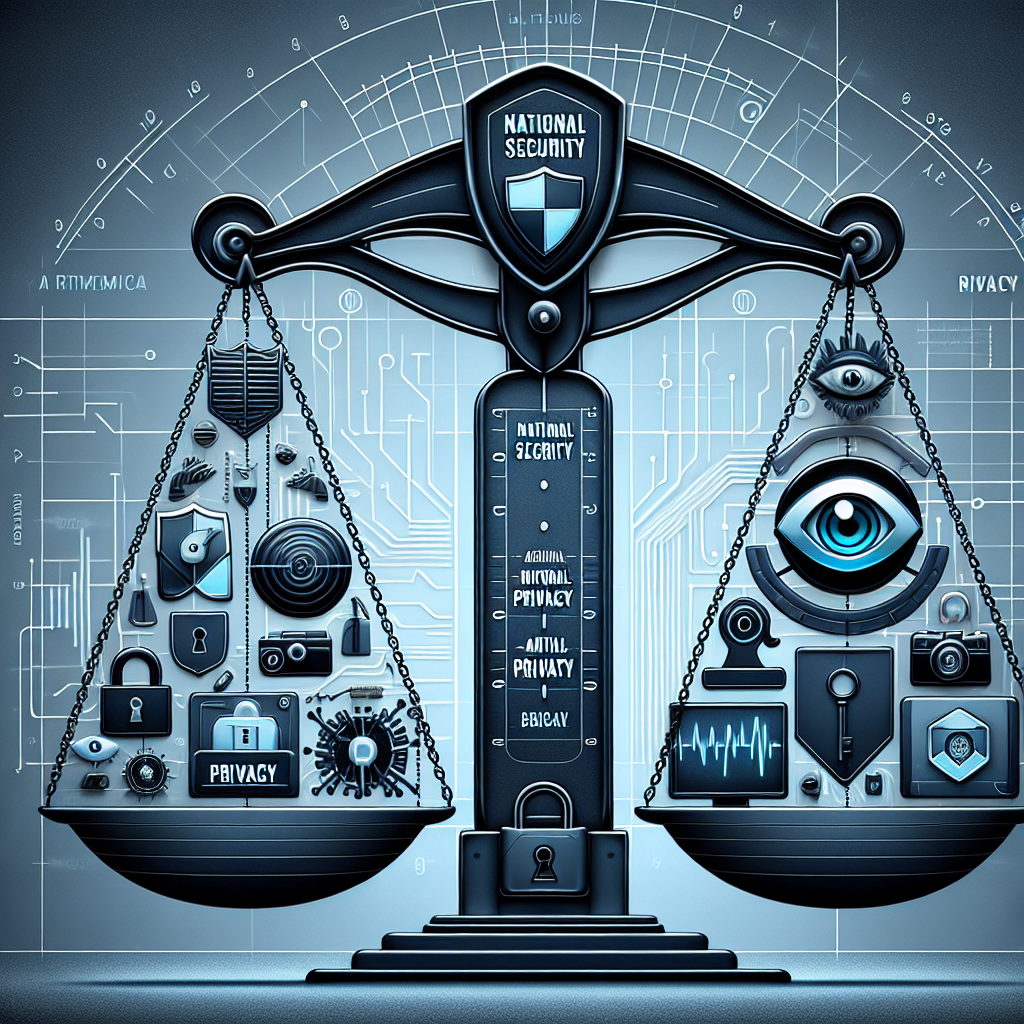Artificial Intelligence (AI) has become a powerful tool in enhancing national security efforts around the world. From detecting potential threats to analyzing vast amounts of data, AI has the potential to revolutionize how countries protect their citizens and interests. However, with the use of AI in national security comes concerns about privacy and civil liberties. Balancing the need for security with the protection of individual rights is a critical issue that policymakers must address as AI technology continues to advance.
AI in National Security
AI has the capability to significantly enhance national security efforts in a variety of ways. One of the key benefits of AI is its ability to analyze large amounts of data quickly and efficiently. This can be crucial in identifying potential threats, such as cyber attacks or terrorist activities, in real time. AI algorithms can sift through vast amounts of information from various sources, including social media, surveillance cameras, and communication intercepts, to detect patterns and anomalies that may indicate a security risk.
In addition to threat detection, AI can also be used for predictive analytics, helping security agencies anticipate and prevent future threats before they occur. By analyzing past data and trends, AI algorithms can identify potential risks and vulnerabilities, allowing authorities to take proactive measures to mitigate them. This can include deploying resources to high-risk areas, strengthening cybersecurity defenses, or conducting targeted surveillance operations.
AI can also be used to enhance decision-making processes in national security. By providing policymakers and military leaders with real-time analysis and insights, AI can help them make more informed and strategic decisions. This can be particularly useful in crisis situations, where quick and accurate information is critical for effective response and management.
Privacy Concerns
Despite its potential benefits, the use of AI in national security raises concerns about privacy and civil liberties. The collection and analysis of vast amounts of data by AI algorithms can lead to potential violations of individual privacy rights. This is particularly concerning in the context of surveillance activities, where AI technologies can be used to monitor and track individuals without their knowledge or consent.
Another area of concern is the potential for bias and discrimination in AI algorithms. If not properly designed and implemented, AI systems can inadvertently perpetuate existing biases and prejudices, leading to unfair treatment and discrimination against certain groups or individuals. This is a significant issue in national security, where decisions based on AI analysis can have far-reaching implications for individuals’ rights and freedoms.
Moreover, the use of AI in national security raises questions about transparency and accountability. The complex nature of AI algorithms makes it difficult for individuals to understand how decisions are made and what data is being used to inform them. This lack of transparency can erode trust in government institutions and undermine public confidence in national security efforts.
Balancing Security and Privacy
Balancing the need for security with the protection of individual privacy is a complex and challenging task. Policymakers must find ways to harness the power of AI in national security while ensuring that privacy rights are respected and upheld. This requires a careful and thoughtful approach that takes into account the potential risks and trade-offs involved.
One way to address privacy concerns in the use of AI in national security is to establish clear guidelines and regulations governing its use. This can include implementing strict data protection measures, ensuring transparency in decision-making processes, and conducting regular audits to monitor compliance with privacy laws. Additionally, policymakers should engage with experts, civil society organizations, and the public to ensure that AI technologies are used in a responsible and ethical manner.
Another important aspect of balancing security and privacy is to incorporate privacy-enhancing technologies into AI systems. This can include techniques such as differential privacy, homomorphic encryption, and federated learning, which help protect sensitive data and minimize the risks of privacy breaches. By integrating these technologies into AI algorithms, security agencies can enhance data protection while still achieving their objectives.
Frequently Asked Questions (FAQs)
Q: How can AI be used to enhance national security efforts?
A: AI can be used in a variety of ways to enhance national security, including threat detection, predictive analytics, and decision-making support. By analyzing large amounts of data quickly and efficiently, AI algorithms can help identify potential risks and vulnerabilities, allowing authorities to take proactive measures to mitigate them.
Q: What are the privacy concerns associated with the use of AI in national security?
A: The use of AI in national security raises concerns about privacy and civil liberties, including the collection and analysis of vast amounts of data, potential bias and discrimination in AI algorithms, and the lack of transparency and accountability in decision-making processes.
Q: How can policymakers balance security and privacy when using AI in national security?
A: Policymakers can balance security and privacy by establishing clear guidelines and regulations governing the use of AI, implementing privacy-enhancing technologies, and engaging with experts and civil society organizations to ensure that AI technologies are used in a responsible and ethical manner.

